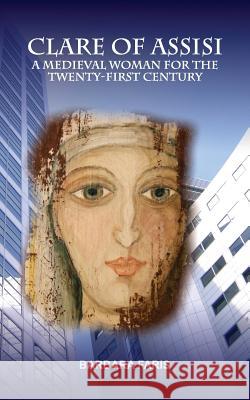Clare of Assisi » książka
Clare of Assisi
ISBN-13: 9781910406021 / Angielski / Miękka / 2014 / 234 str.
The Catholic hagiographical myths surrounding Clare of Assisi describe a woman of extraordinary virtue and superhuman perfection. In an effort to humanize Clare the author has used hagiography and mythology. This study uses history, psychology and literature to interpret Clare's life and her writings. Psycho-mythology, which depends upon an expanded use of active imagination, undergirds elements of the personal content incorporated in this work. Legends, dreams, and visions share insights with historical fact and rational investigation, in order to portray a Clare who uniquely contributes her gifts of leadership, femininity, and simplicity-of-life to human history. An examination of Clare's historical setting in the feudal times underpins the study which is based upon four elements in Clare's practical application of love: contemplation, community, poverty and union. These topics allow this study to investigate Clare's life from an empirical standpoint and an imaginable hermeneutic. History and myth intermingle. The Clare who emerges is a woman who fits into the twenty-first century. She practices a contemplation in keeping with the fast pace of modern society, develops a form of leadership-of-the-many, lives a simple lifestyle which frees the overindulged, and espouses a manner of relationship which tenders affection to the individual while strengthening the bonds of the communal. She comes forth as a woman who tends soul, and loves being human.
The Catholic hagiographical myths surrounding Clare of Assisi describe a woman of extraordinary virtue and superhuman perfection. In an effort to humanize Clare the author has used hagiography and mythology. This study uses history, psychology and literature to interpret Clares life and her writings. Psycho-mythology, which depends upon an expanded use of active imagination, undergirds elements of the personal content incorporated in this work. Legends, dreams, and visions share insights with historical fact and rational investigation, in order to portray a Clare who uniquely contributes her gifts of leadership, femininity, and simplicity-of-life to human history. An examination of Clares historical setting in the feudal times underpins the study which is based upon four elements in Clares practical application of love: contemplation, community, poverty and union. These topics allow this study to investigate Clares life from an empirical standpoint and an imaginable hermeneutic. History and myth intermingle.The Clare who emerges is a woman who fits into the twenty-first century. She practices a contemplation in keeping with the fast pace of modern society, develops a form of leadership-of-the-many, lives a simple lifestyle which frees the overindulged, and espouses a manner of relationship which tenders affection to the individual while strengthening the bonds of the communal. She comes forth as a woman who tends soul, and loves being human.











